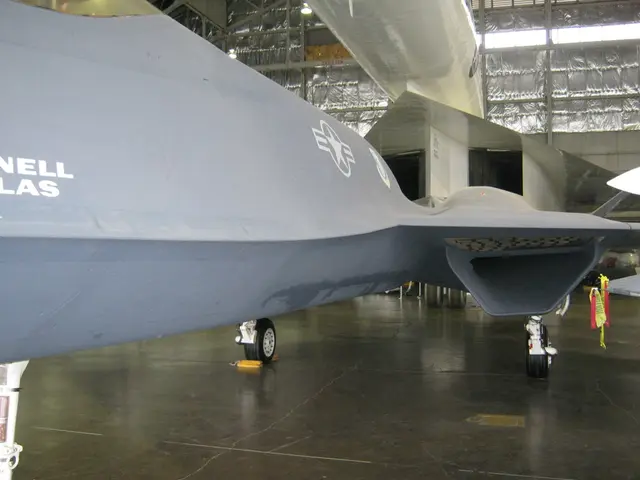Robotic entities adopting human consciousness: The sci-fi series 'Alien: Earth' indicates a potential future trend.
In the world of science fiction, the upcoming FX series "Alien: Earth" promises to be a captivating exploration of the malleable definition of "human" outside the constraints of a two-hour-long film. Set in the year 2120, the series finds itself nestled between the prequel films and the original "Alien" movie, delving into the early arrival of Xenomorphs on Earth following the crash of the space vessel USCSS Maginot.
David Ryan Polgar, the founder of All Tech Is Human, draws a clear line between what Neuralink, a company founded by Elon Musk, is pursuing and what Prodigy Corp. accomplishes in "Alien: Earth." Neuralink has been developing implantable brain-computer interfaces for nearly a decade, with the goal of helping people with disabilities regain mobility and independence. On the other hand, Prodigy Corp. in the series uploads human consciousness into synthetic bodies, a concept that raises profound questions about the nature of life and consciousness.
The show's protagonist, an android named Wendy, was originally a dying child named Marcy. Wendy's consciousness was uploaded into an android body by Prodigy Corp. CEO Boy Kavalier. This raises questions about whether the result of uploading human consciousness is a continuation of the individual's life or a new, altered being.
In "Alien: Earth," hybrids, the term used for the uploaded consciousnesses, grapple with these existential questions. Meanwhile, Neuralink's first brain chip implantation in a human last year, though yielding some successful results, did not go exactly as planned. The main problem in replicating human consciousness in robots, as Polgar points out, is the lack of understanding of what consciousness is and how it functions.
Prodigy Corp., much like companies like Neuralink, may collaborate with ethicists and thinkers or operate furtively, as depicted in the series. Polgar questions whether striving to live forever is a worthy pursuit, suggesting it could lead to a dystopian future. He also emphasises that building conscious machines creates moral responsibilities that we might not be ready for.
Prof. Carlos Gershenson-Garcia, a renowned expert in the field, states that tech companies are many years from implanting human souls into robots or computer chips. The process of uploading human consciousness to a synthetic body, as portrayed in "Alien: Earth," remains highly speculative.
As we eagerly await the eight-episode season of "Alien: Earth," airing on FX and Hulu in the US and Disney+ internationally starting August 12, 2025, it serves as a thought-provoking bridge revealing how Xenomorphs first come to Earth. The series also provides a timely reminder of the ethical implications of our pursuit of technological advancements.
Read also:
- Experiencing Life's Variety Firsthand: Gaining Insights from Life's Broad Spectrum of Experiences
- Impact of Complex Post-Traumatic Stress Disorder on Romantic Relationships: Symptoms, Causes, and Precautions
- Exploring the Truth Behind Gestational Diabetes Causation: Separating Facts from Fiction
- Cautionary Guide for Awareness: Ayurvedic Infant Items Octagonal for Baby's Wellness








